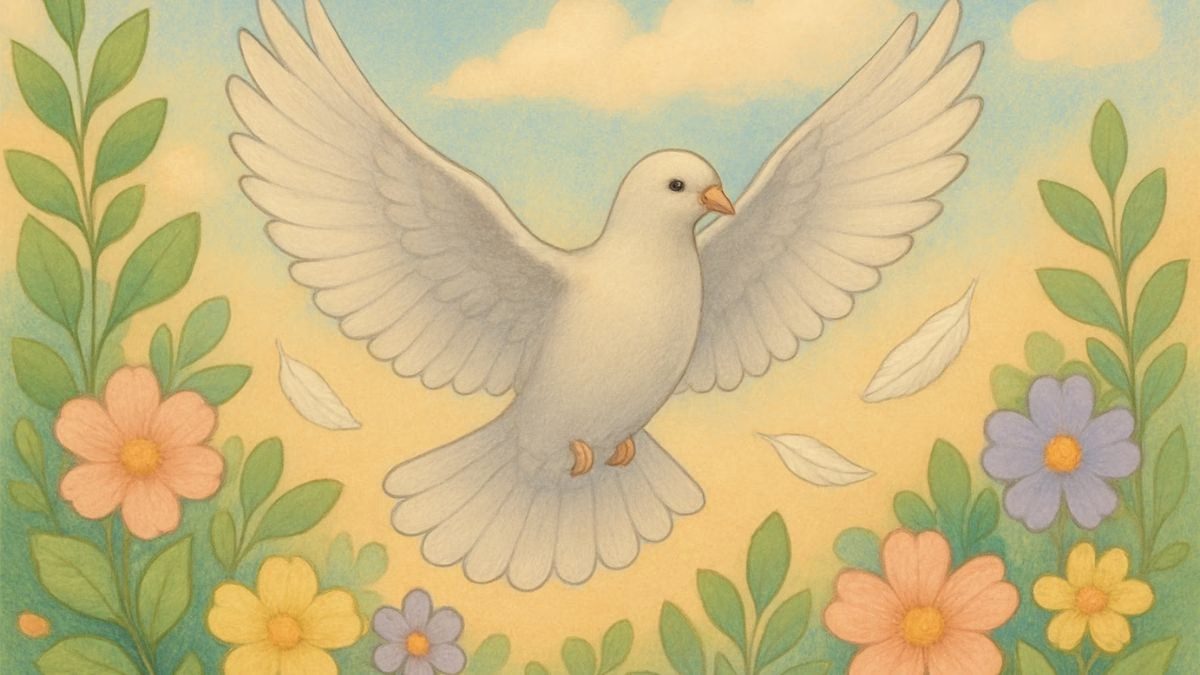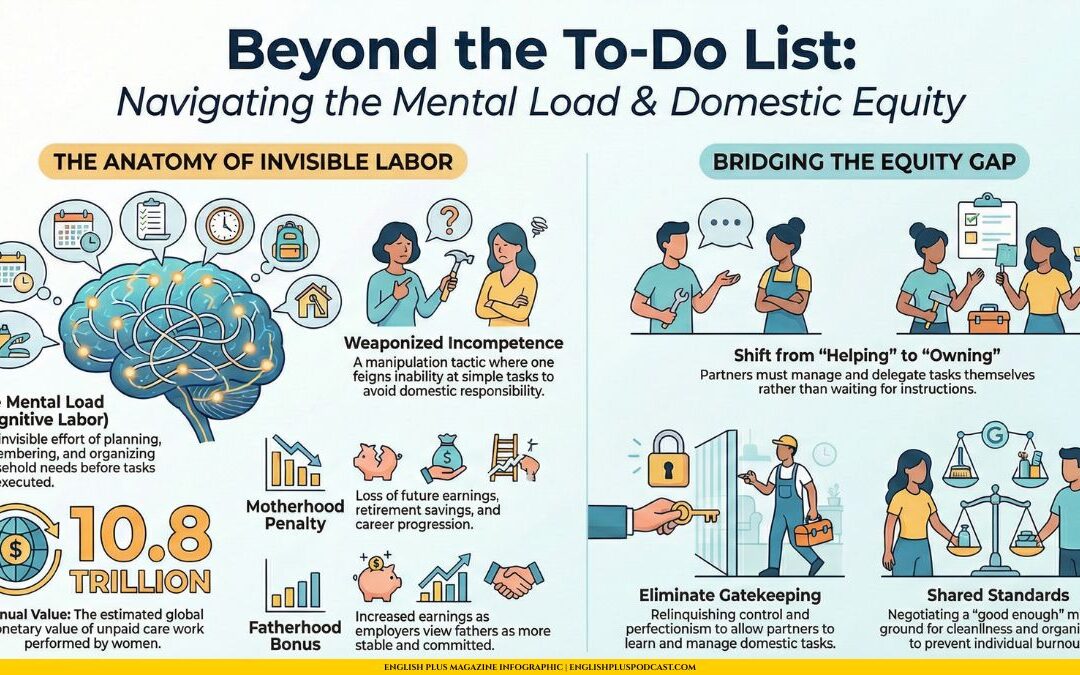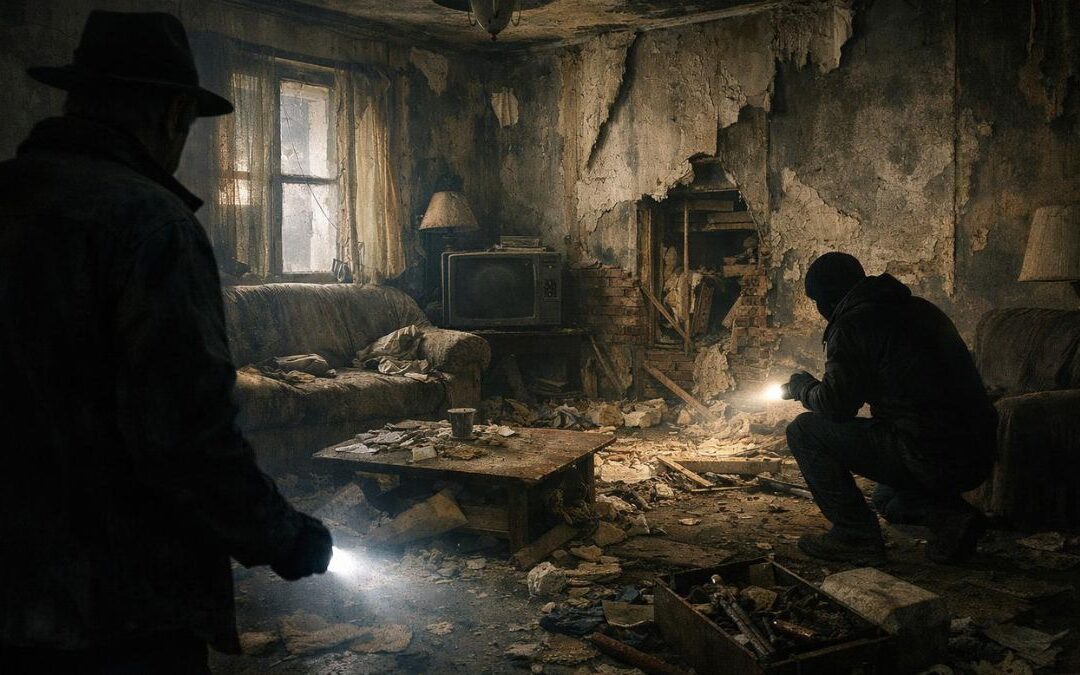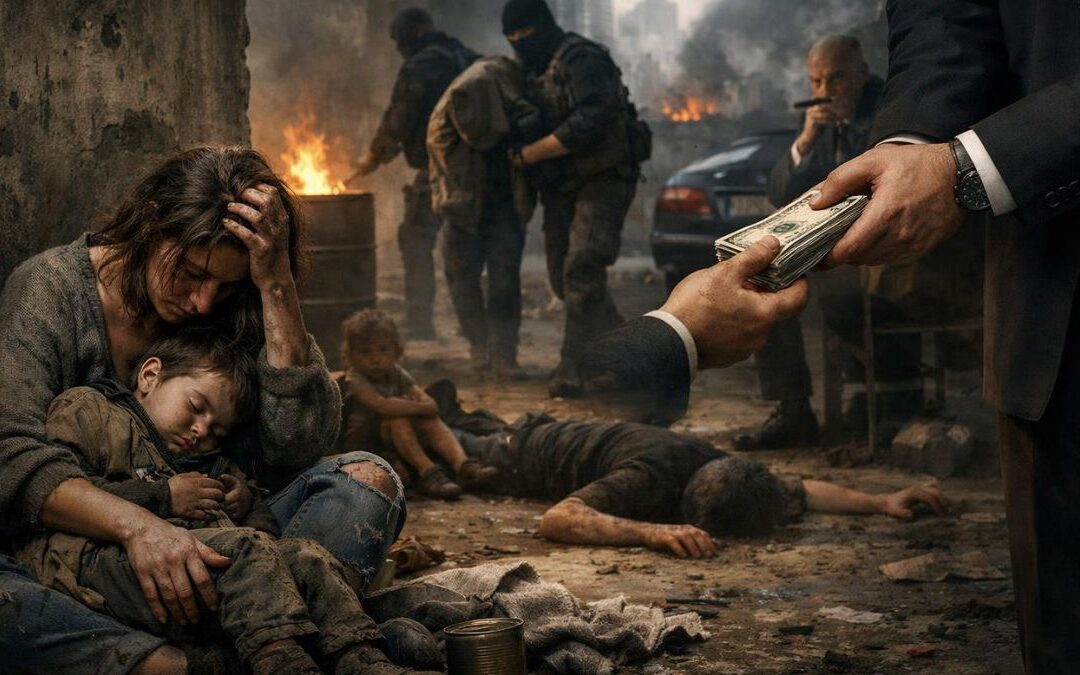Hello and welcome to English Plus.
Have you ever had one of those perfectly quiet moments? Maybe it’s early in the morning, the sun is just starting to warm the world, you’ve got a cup of coffee or tea, and there’s no noise. No traffic, no shouting, no notifications pinging on your phone. Just… stillness. In that moment, everything feels right. That feeling, that small, personal slice of tranquility, is a taste of peace.
And yet, when we scale that idea up, when we talk about “world peace,” it almost feels like a joke, doesn’t it? It’s the cliché answer in a beauty pageant. It’s the dream of a naive idealist who doesn’t understand how the “real world” works. We’ve been conditioned to think of peace on a global scale as a fantasy, a lovely but ultimately impossible dream. We see history books filled with wars, news channels broadcasting conflict 24/7, and we think, “Yeah, peace is a nice idea, but it’s not realistic.”
But what if we’ve been looking at it all wrong? What if peace isn’t the fluffy, utopian endpoint we imagine it to be? What if it’s not about everyone holding hands and singing in perfect harmony? What if, instead, peace is the most pragmatic, logical, and essential strategy for human survival and progress? What if it’s not a dream, but a job? A project we can actually work on?
I want to invite you to join me in rethinking peace. Not as some distant utopia, but as a fundamental necessity. We’re going to peel back the cynicism and look at why peace isn’t just a lofty ideal, but the only truly sustainable path forward for all of us. We’ll explore the devastating, often hidden costs of conflict, uncover the almost magical power of cooperation, and see how this grand idea of peace might be far more realistic than it seems. This isn’t a lecture about being nice. This is a deep dive into why peace matters, now more than ever.
Let’s start by acknowledging the elephant in the room: our own cynicism. It’s completely understandable. We are bombarded with evidence of conflict. From playground squabbles to international disputes, friction seems to be the default state of human interaction. The narrative we’re often sold is that humanity is fundamentally competitive, selfish, and aggressive. It’s a “dog-eat-dog” world. The idea of “survival of the fittest” gets twisted to mean “survival of the most ruthless.” So, naturally, we conclude that war and conflict are inevitable. They are simply part of our DNA.
This view, often called “realism” in international politics, suggests that the best we can hope for is a temporary balance of power, a tense standoff where everyone is too afraid of the consequences to start a fight. It’s a grim picture, but it feels true to life, doesn’t it? It feels like it explains the world we see on the news.
But what if that’s only one side of the story? A very loud, very dramatic side, but not the whole picture. What if our true superpower as a species isn’t our aggression, but our ability to cooperate?
Think about the city or town you live in. The roads, the buildings, the electricity grid, the internet that’s bringing my voice to you right now. None of that was built through conquest. It was built through cooperation. Millions of people, most of whom will never meet, agreeing on rules, sharing knowledge, and working together toward common goals. The simple act of buying groceries is a miracle of global cooperation, involving farmers, packers, truck drivers, and store clerks, all trusting the system to work.
Conflict gets the headlines because it’s explosive and disruptive. A building being blown up is news. The millions of buildings that stand peacefully every single day? That’s not news. But that quiet, functioning cooperation is the bedrock of our civilization. It’s the norm, not the exception. War is the breakdown of that norm. So maybe conflict isn’t our default setting after all. Maybe it’s a catastrophic failure of our greatest skill: working together.
To really understand why we need to shift our perspective, let’s talk about the price we pay for this failure. Let’s talk about the true cost of conflict. And it’s so much more than you think.
When we think of the cost of war, our minds immediately go to the most visible, tragic consequences. The first is, of course, the human cost. The soldiers and civilians who lose their lives. These aren’t just statistics. Every single number represents a universe of experiences, relationships, and potential that has been extinguished forever. It’s a parent, a child, a friend, a creator. This loss is absolute and immeasurable. Then there’s the physical destruction—the cities turned to rubble, the homes destroyed, the infrastructure that took generations to build, gone in an instant. This is the obvious, horrifying price tag of war, and it is staggering.
Then there’s the economic cost. The amount of money poured into weapons, military budgets, and the machinery of war is almost impossible to comprehend. We’re talking trillions of dollars globally. Let’s try to make that tangible. A modern fighter jet can cost over 100 million dollars. For that same amount, you could build dozens of schools, fully equip several hospitals, or provide clean drinking water to hundreds of thousands of people. When we choose to fund conflict, we are actively choosing not to fund development, health, education, and progress. The money doesn’t just disappear; it’s an allocation of our collective resources toward destruction instead of creation.
But these direct costs, as horrific as they are, are just the tip of the iceberg. The hidden costs of conflict are what truly cripple us, often for generations.
Let’s start with the cost of lost potential. Think about every brilliant mind, every potential scientist, artist, or entrepreneur who is forced to become a soldier, or who becomes a refugee, or who simply never gets an education because their country is at war. What cures for diseases have we missed? What incredible works of art were never created? What technological breakthroughs never happened because the people who might have achieved them were consumed by conflict? This is the silent, invisible toll that war takes on human progress. It’s an opportunity cost on a global scale. We are literally fighting each other instead of fighting our common enemies: disease, poverty, and climate change.
Next is the environmental cost. Wars are ecological catastrophes. They poison land and water with chemicals and munitions, they cause massive carbon emissions, they destroy ecosystems, and they divert attention and resources away from urgent environmental crises. The planet doesn’t recognize our borders. The pollution from one conflict can affect the air and water of an entire region. In our pursuit of fighting each other, we are collectively waging a war against the very planet that sustains us.
And perhaps the most insidious hidden cost is the destruction of trust. Trust is the invisible thread that holds societies together. It’s trust in our neighbors, trust in our institutions, trust in the idea that we can resolve disputes without violence. Conflict shreds this thread. It creates deep wounds of trauma, hatred, and suspicion that can last for generations. It builds walls between people, both literal and psychological. A society without trust is a society in a constant state of low-grade fear. And in that environment, creativity, collaboration, and genuine happiness can’t flourish. Rebuilding a city is a matter of concrete and steel. Rebuilding trust can take centuries.
When you add it all up—the lives lost, the cities destroyed, the money wasted, the potential squandered, the environment poisoned, and the trust shattered—the cost of conflict is not just high. It’s unsustainable. It is a dead end for the human species. No one truly wins a war in the long run. The so-called victor is left with a crippled economy, a traumatized population, and a legacy of bitterness that plants the seeds for the next conflict. It is a self-perpetuating cycle of loss.
So if conflict is such a terrible deal, why do we keep taking it? The answer lies in that myth we talked about earlier—the myth that this is just how things are. But we have overwhelming evidence of a better way. It’s the story of cooperation.
As I mentioned, we tend to misinterpret “survival of the fittest.” Biologists will tell you that the “fittest” organism is not the most aggressive one, but the one that is best adapted to its environment. And for countless species, including our own, the most successful adaptation is cooperation.
Look at the natural world. A forest is not a battlefield of individual trees fighting for sunlight. It’s a complex, interconnected community. Trees communicate through underground fungal networks, sharing nutrients and sending warning signals about pests. This is a symbiotic system where the whole is far stronger than its individual parts. Your own body is a testament to this principle. It’s a cooperative of trillions of cells, each performing a specialized function to keep the whole system alive. If your cells decided to adopt a “me-first” philosophy, the system would collapse.
Human history is the same story, just on a grander scale. What allowed our fragile, slow, clawless ancestors to survive and eventually thrive on a planet full of predators? It wasn’t our individual strength. It was our ability to communicate, plan, and work together in groups. Hunting a mammoth, building a shelter, raising children—these were all team sports. Our brains evolved for social connection and cooperation.And every major leap forward in our civilization has been powered by cooperation, not conflict. The invention of writing allowed us to share knowledge across generations. The Silk Road wasn’t just a trade route; it was an information highway that exchanged ideas, technologies, and cultures across continents. The Scientific Revolution was a collaborative effort by thinkers across Europe who built upon each other’s work.And if you want a stunning modern example, look up at the night sky. There’s a good chance the International Space Station is flying overhead. Think about what that is. It’s a multi-billion dollar laboratory, orbiting the Earth at 17,500 miles per hour, in the most hostile environment known to humanity. And who built it and operates it? A coalition of nations, including the United States and Russia, who for decades were locked in a Cold War, pointing nuclear weapons at each other. Yet in space, their astronauts and cosmonauts work side-by-side, literally trusting each other with their lives every single day. The ISS is a powerful, floating symbol that when we choose a common goal that is bigger than our differences, cooperation is not just possible; it is incredibly powerful.
Cooperation creates what we can call a “peace dividend.” While conflict is a drain on resources, peace creates a surplus. When countries aren’t spending their budgets on armies, they can invest in infrastructure, healthcare, and education. When people aren’t living in fear, they can be more innovative, entrepreneurial, and creative. Trade, tourism, and cultural exchange flourish in times of peace, enriching everyone involved. Peace isn’t a passive state of doing nothing. It’s the active, dynamic condition that allows for progress. It is the soil in which human potential can grow.
Okay. At this point, you might be thinking, “Fine, I get it. Conflict is terrible, cooperation is great. But the world is a messy, complicated place. How can we realistically get from here to there? It still sounds like a dream.”
This is the most important part. We need to rescue the idea of peace from the realm of fantasy and bring it into the world of practical, achievable work. And the first step is to understand that peace is not an event. It’s not a switch you flip. It’s a process. It’s a continuous effort. And it isn’t about the absence of problems.
The great peace researcher Johan Galtung made a crucial distinction between what he called “Negative Peace” and “Positive Peace.””Negative Peace” is simply the absence of direct violence. It’s a ceasefire. It’s a truce. The fighting has stopped. This is obviously a crucial first step, but it’s often fragile. The underlying problems—the inequality, the injustice, the historical grievances—are still simmering just below the surface. A society can be in a state of Negative Peace but still be deeply dysfunctional and oppressive.
“Positive Peace,” on the other hand, is much more profound. It’s the presence of structures and systems that create and sustain a just and equitable society. It’s having fair laws and a reliable justice system. It’s ensuring equal access to education and economic opportunity. It’s building institutions that help resolve conflicts non-violently. It’s fostering a culture of respect and understanding.
Think of it like building a house. Negative Peace is stopping the storm from raging inside. Positive Peace is building a strong foundation, sturdy walls, and a solid roof so that the house can withstand future storms. It’s the hard, unglamorous, day-to-day work of maintenance and construction.
And we have seen this construction project in action. Look at the European Union. For a thousand years, Europe was arguably the most violent continent on the planet. Nations were locked in a seemingly endless cycle of brutal wars, culminating in the two World Wars of the 20th century. After 1945, a generation of leaders made a radical choice. Instead of seeking revenge and punishment, they decided to build a new system based on economic cooperation. They started with coal and steel—the very resources of war—and decided to share them.The idea was simple but revolutionary: if our economies are so intertwined that we depend on each other for our prosperity, then going to war becomes unthinkable. It would be like declaring war on your own customers and suppliers. It was a long, difficult process, with many arguments and setbacks. The EU is far from perfect today. But what it has achieved is nothing short of a miracle. For over 70 years, a region once defined by war has experienced an unprecedented period of peace among its member states. Generations have grown up without ever having to imagine fighting their neighbors. They didn’t just hope for peace; they built the structures for it, piece by piece.
We can see another example in post-apartheid South Africa. After decades of brutal, institutionalized racism, the country was on the brink of a civil war. When apartheid finally fell, the natural human impulse for revenge was enormous. But instead of pursuing that path, leaders like Nelson Mandela championed the idea of a Truth and Reconciliation Commission. It was a painful, public process where victims could tell their stories and perpetrators could confess their crimes in exchange for amnesty. Again, it was deeply imperfect and controversial. But it was a deliberate choice to prioritize building a shared future over settling past scores. It was an act of building Positive Peace.
These are huge, national-level examples. But this work happens on a smaller scale, too. It happens in communities that establish mediation centers to resolve neighborhood disputes. It happens in schools that teach conflict resolution skills alongside math and science. It happens every time we choose dialogue over division, empathy over anger, and understanding over judgment.
Peace, then, isn’t about waiting for some magical moment when all our problems disappear. It’s about developing the capacity—as individuals, communities, and nations—to deal with our inevitable conflicts and disagreements constructively and non-violently. It’s about building a world where the first resort is the negotiating table, not the battlefield.
So, where does that leave us? We’ve looked at peace not as a naive dream, but as a rational necessity. We’ve tallied the true, devastating costs of conflict, which go far beyond the battlefield to cripple our potential, our planet, and our very humanity. We’ve rediscovered cooperation not as a weakness, but as the fundamental superpower that built our civilization. And we’ve reframed peace not as a destination, but as a practical, ongoing construction project—the building of systems that foster justice and understanding.
This isn’t to say it’s easy. The forces that profit from conflict—from the arms industry to politicians who thrive on division—are powerful. And the cynicism that tells us “it’s always been this way” is a heavy blanket to lift.
But history shows us that things can change. The ideas that slavery was natural, that women shouldn’t vote, that kings had a divine right to rule—these were all once considered unchangeable facts of life. But they were challenged, and they fell. The idea that war is inevitable is just another one of those limiting beliefs we have the power to overcome.
This is the invitation of this episode, and of this entire week’s theme. It’s an invitation to start looking at the world through a different lens. To see the quiet acts of cooperation that happen all around you every day. To question the narratives that tell you conflict is the only option. To think about the true price we pay every time we choose division over unity.
Rethinking peace as a necessity, not a utopia, changes everything. It moves it from the category of “wouldn’t it be nice” to the category of “we must get this done.” It becomes as urgent and as practical as building safe roads or finding a cure for cancer. It becomes the great project of our time.
And if peace is a project we can build, a skill we can learn, a choice we can make… where do we even begin? The task feels enormous, global, and out of our hands. But maybe the first tool we need to pick up is something we use every single day. Maybe it starts with our words. And that’s exactly what we’ll be exploring in our next episode.
Thank you for spending this time with me. Take a moment today to find one of those quiet, still moments. And in that stillness, consider the possibility. The possibility that peace isn’t just a dream, but our only way forward.










0 Comments